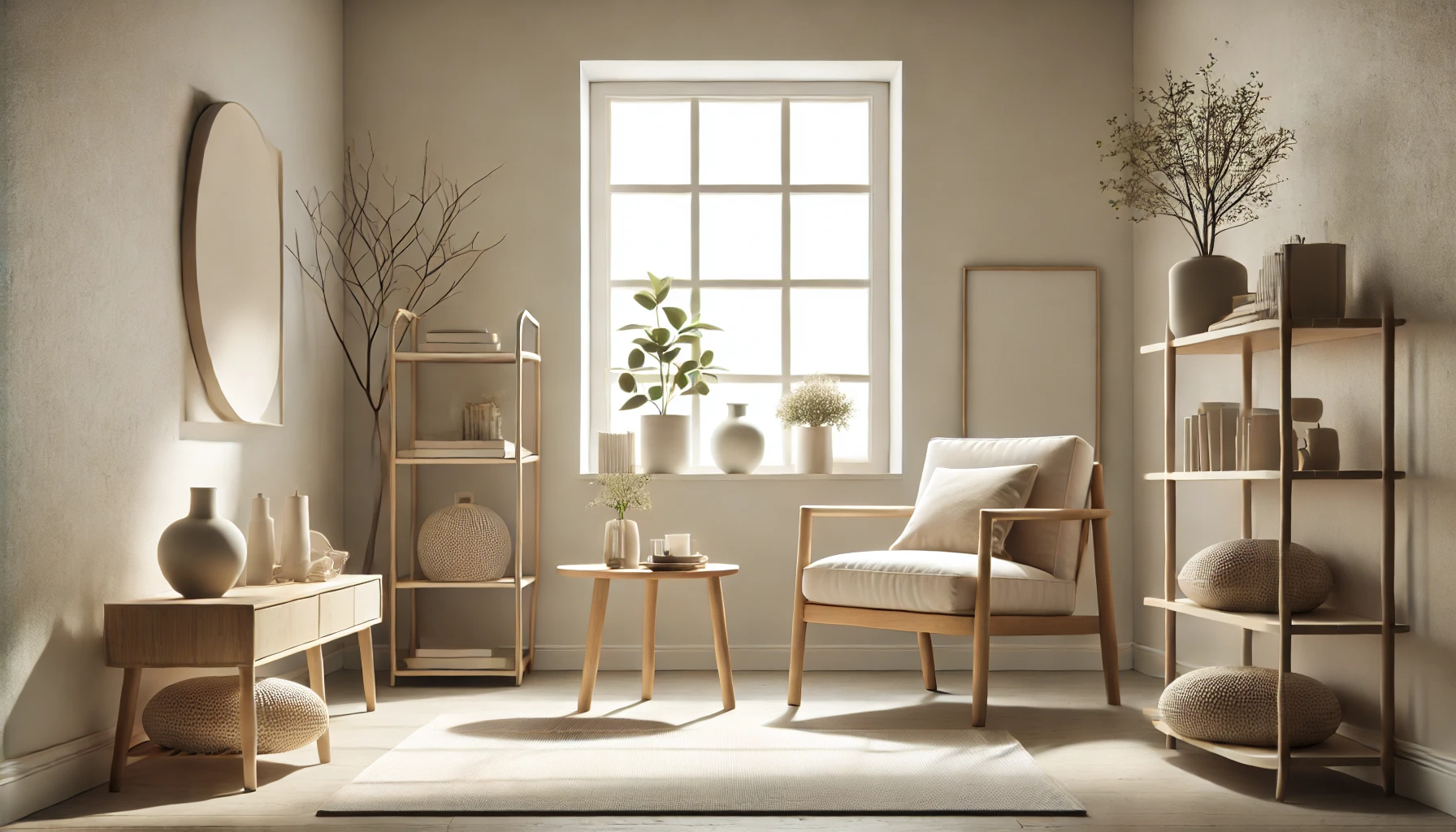Minimalism isn’t just about owning fewer things—it’s about creating space in your life for the things that truly matter. By simplifying your environment and focusing on what’s important, you can experience more clarity, peace, and happiness. Embracing a minimalist lifestyle can help reduce stress, improve your well-being, and allow you to live with more intention.
Start by Decluttering Your Space
One of the first steps to adopting a minimalist lifestyle is decluttering your living space. Start small by going through one room at a time and removing items that no longer serve a purpose. This process doesn’t need to be done all at once, but by gradually reducing excess, you’ll begin to create a more organized and peaceful environment. The less clutter you have, the more space you’ll create for the things you truly value.
Focus on Quality Over Quantity
Minimalism encourages you to focus on the quality of the items you own rather than the quantity. Rather than buying multiple items for every occasion, choose well-made products that serve a purpose and last longer. By investing in higher-quality possessions, you’ll find that you don’t need as much to feel fulfilled. This shift in mindset will not only save you money in the long run but also reduce the clutter in your home.
Simplify Your Schedule
A minimalist lifestyle isn’t just about your physical possessions—it also applies to your time. Simplifying your schedule means eliminating unnecessary commitments and activities that don’t align with your priorities. Take time to evaluate how you’re spending your days and identify areas where you can cut back. By focusing on what’s truly important and letting go of the excess, you’ll find more time to enjoy life and engage in activities that bring you joy.
Embrace Mindfulness
Mindfulness plays a significant role in a minimalist lifestyle. By being more present in the moment, you can appreciate life’s simple pleasures and feel more connected to your surroundings. Take time each day to practice mindfulness, whether it’s through meditation, deep breathing, or simply taking a walk outside. Being mindful of your thoughts and actions will help you live with greater intention, reducing unnecessary stress and helping you make decisions that align with your values.
Let Go of Emotional Clutter
Minimalism isn’t just about physical possessions—it’s also about letting go of emotional baggage. Unresolved emotions, past regrets, or negative relationships can weigh you down and hinder your ability to live fully. Letting go of emotional clutter means making peace with the past and focusing on the present. This can be achieved by practicing forgiveness, setting healthy boundaries, and releasing any emotional attachments that no longer serve your well-being.
Create a Purposeful Environment
The environment in which you live greatly affects your mindset. To create a minimalist lifestyle, aim to design your living space to reflect your values and support your mental clarity. Keep your environment simple, organized, and free of distractions. This doesn’t mean you have to remove everything from your space, but rather choose decor and furniture that inspire calmness and functionality. A purposeful environment will help you stay focused and improve your overall mood.
Prioritize Experiences Over Material Possessions
Minimalism encourages you to value experiences over material things. Rather than accumulating more possessions, focus on creating memories through travel, hobbies, and meaningful connections. Spend time with loved ones, try new activities, and invest in experiences that enrich your life. By shifting your focus from material wealth to personal growth and enjoyment, you’ll find that happiness comes from within, not from the things you own.
Set Clear Goals and Intentions
A minimalist lifestyle is about living with purpose. To achieve this, set clear goals and intentions for your life. Reflect on what matters most to you and make decisions that align with your core values. Whether it’s improving your health, focusing on career growth, or building meaningful relationships, having clear goals will help you prioritize what’s important and eliminate distractions that don’t contribute to your happiness.
Practice Gratitude
Incorporating gratitude into your minimalist lifestyle will help you appreciate the things you already have. Take time each day to reflect on what you’re thankful for, whether it’s the people in your life, the experiences you’ve had, or even the simplicity of your surroundings. Gratitude helps shift your mindset from focusing on what you lack to recognizing the abundance already present in your life. This shift in perspective is a key component of living a minimalist and happier life.
Be Intentional About Consumption
As part of a minimalist lifestyle, it’s important to be intentional about what you bring into your life. Before making a purchase, ask yourself if the item is truly necessary or if it will add value to your life. Avoid impulsive buying and focus on what aligns with your values and needs. Being mindful of your consumption will help you maintain a clutter-free environment and ensure that everything you own serves a meaningful purpose.
Living a Simpler, Happier Life
Creating a minimalist lifestyle is a process that requires intentionality and patience. By decluttering your space, focusing on quality over quantity, simplifying your schedule, and embracing mindfulness, you can create a life that brings you greater peace and happiness. Minimalism encourages you to let go of the excess, focus on what truly matters, and live with purpose. Through this journey, you’ll find that less truly can be more, leading to a simpler, more fulfilling life.
